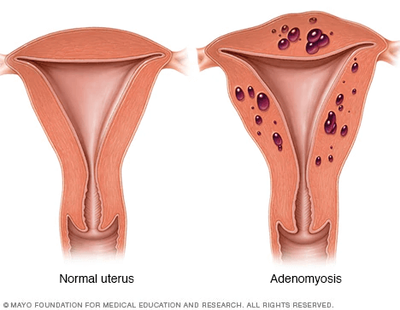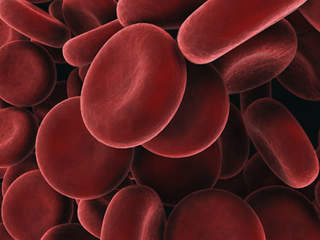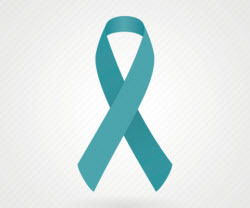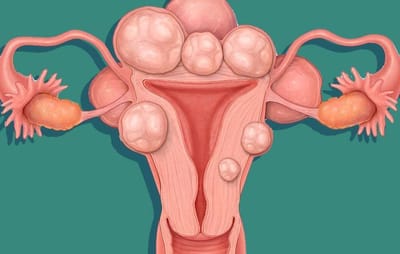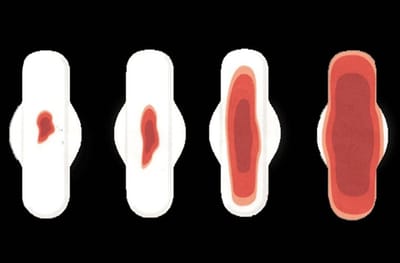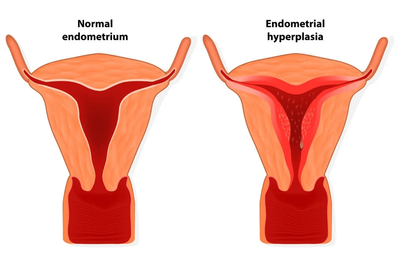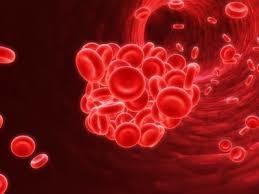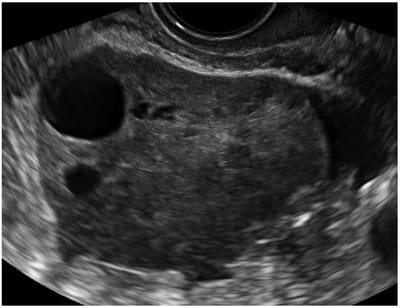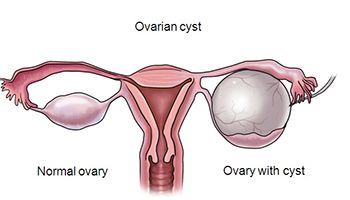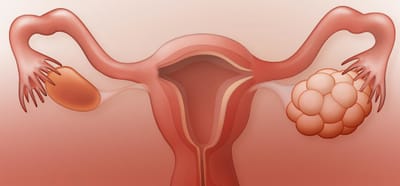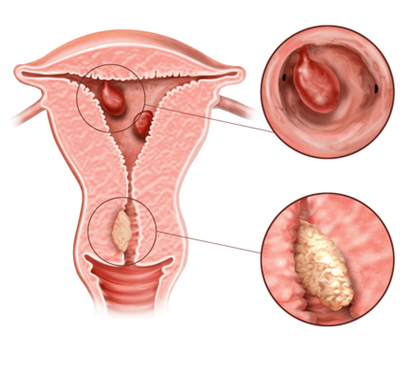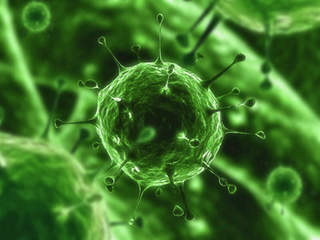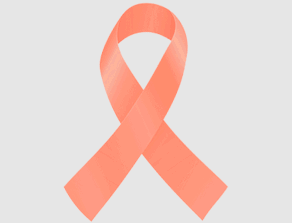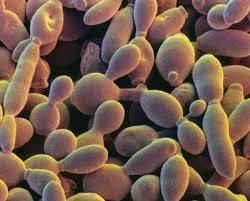My body
What does not having a period mean? Am I pregnant? Is this serious? Dr. Quezada can uncover what is causing your menstrual disruption from minor to serious causes.
Read MoreAdenomyosis is a disorder that is more common than most OBGYNs and patients realize. It is often the cause of pelvic pain and heavy bleeding that can mimic endometriosis or fibroids . It is a very difficult diagnosis to treat once found.
Read MoreAbnormal discharge, odor, discomfort, pain. No longer! A quick and definitive test can discover what the infection is. Don't trust doctors that just prescribe medications without knowing for sure what the diagnosis is.
Read MoreI feel something on my breast exam that i didn't notice was there before! Do I have cancer? What does this mean? This is a common worry among women that start to perform self breast examinations. These exams are CRITICAL to detect early disease but it doesn't always mean there is something wrong. This guide helps to explain some of the things you may feel on exam.
Read MoreLearn more about this deadly but very preventable disease that still kills women in this day and ago.
Read MoreChronic Pelvic Pain affects nearly 1 in 5 women. It can cause significant disruption in a woman's quality of life. Knowledge about this disorder can help alleviate the fear and uncertainty. Knowing their are treatment options can bring hope of improved quality of life.
Read MoreMentrual or Uterine cramps can be VERY painful. It afflicts 10% of all women and could be a sign of underlying pathology such as fibroids or adenomyosis. It may be benign and can be controlled with medications. Seeking care to alleviate this sometime debilitating issue is the first step!
Read MoreEctopic pregnancy is a pregnancy that is not in the right location to be a successful pregnancy. It typically is located in the fallopian tubes and can recur depending on the cause. It is a VERY SERIOUS issue that could be fatal if not treated promptly and correctly.
Read MoreEndometriosis is a common issue that affects millions of women. It can cause severe pain before you rmenstrual cycles, pain with sex, infertility and other issues. It is a very diffciult diagnosis to obtain but also harder to effectively manage. Fortunately Dr. Quezada is adept in finding and treating endometriosis with goals of preserving fertility. There are a multitude of options, not just hysterectomy Find out more....
Read MoreI'm combing my hair and a big clump of hair is coming off, what does this mean? This is a common issue that some women experience especially through significant hormonal shifts such as pregnancy, birth control or menopause.
Read MoreFemale Sexual Dysfunction is common but difficult problem to diagnose and treat because of fear, embarrassment, misinformation or not knowing there is help. There are multiple types of this disorder and trying to figure out what and why is the first step. Every woman in a health relationship should be able to enjoy her sexuality and achieve orgasm. Sometimes it just takes the courage to ask for help.
Read MoreFibroids (AKA Leiomyoma) is a common problem that affects many woman, but negative impacts black women in a disproportionately compared to others. It tends to run in families and can cause a litany of issues including: heavy bleeding, pressure, fullness, urge to pee or poop, pain with sex, infertility, back pain, severe menstrual cramping or leg pain. Prompt diagnosis offer the hope of early intervention and treatment.
Read MoreHeavy Menstrual bleeding goes by many names depending if heavy rapid flow, prolonged days of bleeding or both. This problem affects many women and can lead to anemia, lost days at work, school or your life. Knowing more about this condition can help you determine how serious it is and how to treat it.
Read MoreHyperplasia is an overgrowth of the lining of the uterus. It is a precursor to Endometrial cancer and comes in various stages. It is typically seen after age 45 but starting to see it in women who are obese or with PCOS. Depending on your stage in life and plans, hysterectomy is not the only choice and could be treated medically.
Read MoreMetrorrhagia is a term for prolonged bleeding. The bleeding may not be heavy just exceeds the typical norm of 7 days. This can represent some underlying pathology such as cervical stenosis or bleeding disorder.
Read MoreMiscarriage is an unfortunate loss of an early pregnancy. It is a common and unfortunate outcome to being pregnant but may or may not be associated with underlying issues. It is a sad sudden abrupt stop to the promise of your family. With appropriate time to heal and support, you can heal from this loss.
Read MoreWhat is this terrifying and hard to detect disease? How does it happen and more importantly how can it be prevented?
Read MoreOvarian cysts are a common condition in women during the childbearing years. They result when a cyst forms on the ovary. An ovarian cyst may or may not cause symptoms. The majority of ovarian cysts go away without treatment. In some cases, surgery may be necessary to remove large or ongoing cysts.
Read MorePelvic congestion syndrome is a condition in which the veins in the pelvis become stretched, widened, and congested with blood, similar to varicose veins in the legs. It occurs when the valves that control blood flow to the heart leak, allowing the blood to flow backward and pool in the pelvic veins. The organs affected are the uterus, ovaries and vulva. This condition can be treated successfully with hysterectomy but could be treated with other minor surgical procedures without compromising your fertility.
Read MorePelvic inflammatory disease or PID is an infection of the uterus, fallopian tubes and/or ovaries caused by migration of bacteria usually acquired from sexually transmitted diseases (STDs), particularly gonorrhea and chlamydia. It can lead to infertility,ectopic pregnancy,chronic pelvic pain or other serious consequences. PID is common among sexually active women; an estimated one million American women and teens experience an episode of PID each year. It causes infertility in about 100,000 women annually, as well as a significant percentage of ectopic pregnancies as a result of damage to the lining of the tube.
Read MorePremenstrual syndrome (PMS) includes a variety of symptoms that many women commonly experience in the days before their period begins. Common symptoms include headache, abdominal pain, digestion problems, sleep difficulties, mood changes, and thought processing difficulties. PMS is a real medical condition, and the symptoms are most often treatable. Treatments may include lifestyle changes and medication.
Read MorePolycystic ovary syndorme is a common type of hormone disorder. It causes enlarged ovaries that contain numerous cysts. Polycystic ovary disease may also lead to infertility, excess hair growth, and heavy, irregular, or absent periods. It not treated appropriately, it can also increase risk of getting diabetes mellitus or endometrial cancer. It disproportionately affects women of color more than other women. Treatments include medications and weight reduction.
Read MoreUterine polyps are small, benign protrusions of tissue that grow on the uterine lining ( endometrium). They are overgrowths of the same kind of cells as the lining itself and may appear as finger-like projections or little mushrooms. As they grow, they become fragile and bleed, and as such, they are a common cause of abnormal uterine bleeding, between cycles or after sex. These polyps are easily treated with minor surgery.
Read MoreAdhesions are bands of scar tissue that form during healing from pelvic surgery, infection or endometriosis. Although the formation of scar tissue is a normal part of the healing process, adhesions can be problematic because they cause parts of the body that are not normally connected to stick to each other. It is more common with open surgery and can lead to serious consequences.
Read MoreSexually transmitted diseases (STDs) are bacterial, viral, and parasitic infections that are spread by sexual activity. Females, youths, and people of minority groups have the highest incidence of sexually transmitted diseases. Sexually transmitted diseases may or may not produce symptoms, but they can have severe consequences for women, developing babies during pregnancy, and breast feeding infants. Some sexually transmitted diseases are curable. Others are not, and may result in infertility or even death. It is important to prevent the spread of STDs and to receive prompt diagnosis and treatment if you suspect that you have been exposed to one.
Read MoreEndometrial cancer is the most common type of uterine cancer. It is the most common cancer of the female reproductive system. The primary symptom of endometrial cancer is abnormal vaginal bleeding. Treatment usually involves surgery followed by radiation, chemotherapy, hormone therapy, or a combination of treatments. Because the majority of endometrial cancers are detected and treated early, it is associated with better outcomes than other forms of gynecological cancers.
Read MoreYeast infection is an all too often common infection that woman have to suffer. Getting tested, the right treatment and prevention strategies can lessen the frequency and impact of this problem.
Read More
